#dermatology
Text
519 notes
·
View notes
Text
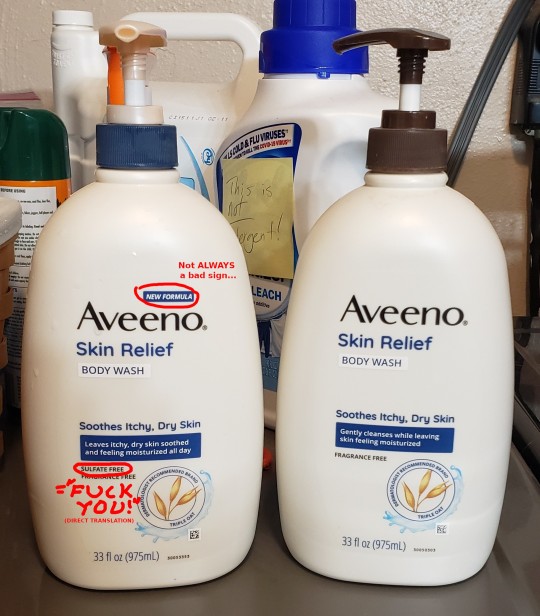
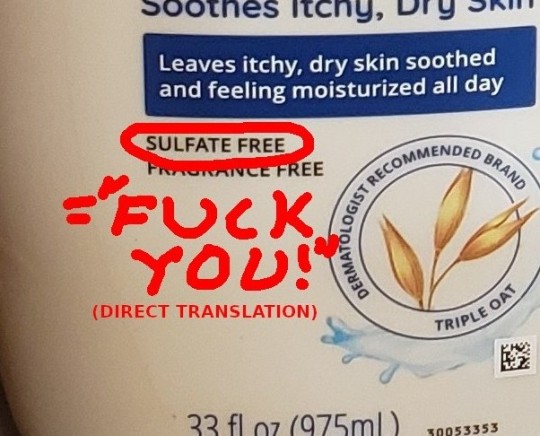
May have just figured out why the lesions have been getting worse! I got the new bottle in early December.
TL;DR, sulfate-free cleansers tend to require more scrubbing for effective cleaning/rinsing. This isn't good for people with skin conditions that are aggravated by friction. Which is, practically-speaking, most people with skin conditions!
And since this cleanser is marketed towards people with "Itchy, Dry Skin" (major symptom of eczema), reviews since the formula change in November have been almost 100% negative. Most reviewers aren't sure why it's now irritating their skin, but they know that it is.
(Notably, in my case, hidradenitis suppurativa-affected hair follicles can easily become inflamed to the size of a thumbnail if the hair gets tugged on too hard. However, since HS also affects the skin's ability to fight off infection, failing to clean the area well enough is dangerous, too! Sulfate-free products are trying to kill me.)
69 notes
·
View notes
Text
Beauty is not defined by society's standards, but by the love and acceptance you have for yourself.
134 notes
·
View notes
Text
Researchers have pinpointed a particular peptide’s role in activating atopic dermatitis, or eczema.
The work could lead to more effective treatments for the condition.
Atopic dermatitis (AD) is a skin condition characterized by itching and irritated and thickened skin at the site of the irritation. The brain natriuretic peptide (BNP) is a peptide, or short chain of amino acids, that is elevated in patients with AD.
“BNP is expressed in sensory neurons, the neurons responsible for conveying sensation to the brain via the spinal cord,” says Santosh Mishra, associate professor of molecular biomedical sciences at North Carolina State University and corresponding author of the work.
“We know from previous work that BNP helps translate the sensation of itch from the skin to the brain. In this work we wanted to see if BNP was involved in activating AD.”
Continue Reading.
89 notes
·
View notes
Text

Vitiligo
#vitiligo#wikipedia#wikipedia pictures#skin#dermatology#melanin#immunology#autoimmune disorder#autoimmune disease#medicine
80 notes
·
View notes
Text
“I think that every doctor’s dream is going into the OR and getting a whole lot of pus out.”*
*This opinion may not be shared by the majority of the medical community.
22 notes
·
View notes
Text
wish Hippocrates was here to witness my dermatologist tell me my skin is "totally fine for 29." he'd be shaking he'd be so furious
23 notes
·
View notes
Text
Somebody tell Ryan Guzman to keep an eye on that dark spot on the back of his right leg.
Learn the ABCDE method of identifying skin cancer, everyone!


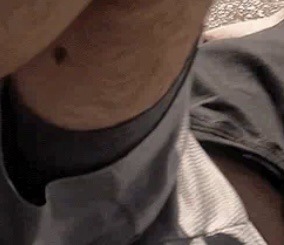
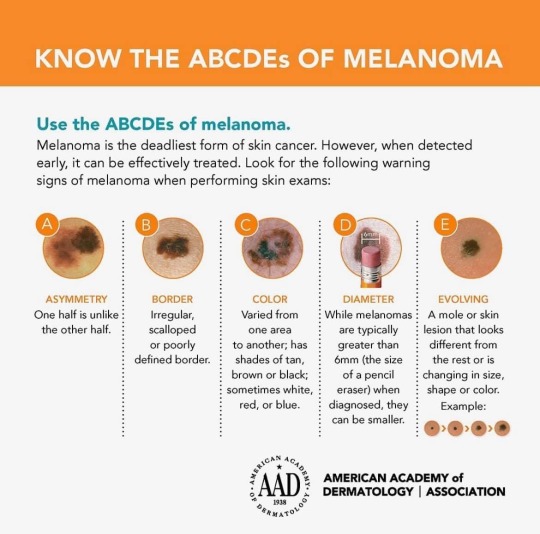
#I’m overreacting#ryan guzman#eddie diaz#911#911 abc#911 sneak peek#911 spoilers#melanoma#skin cancer#dermatology#penpatronus#bromance#penpatronusaooo
18 notes
·
View notes
Text

Dotted baby. Delineations of cutaneous diseases. 1817.
"White Gum...exhibits hard, whitish pimples...frequently unaccompanied by any disposition."
Internet Archive
88 notes
·
View notes
Text
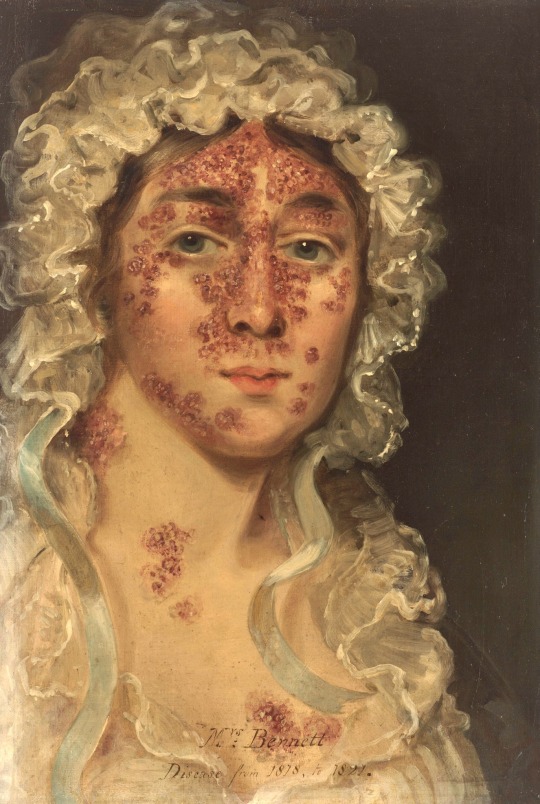
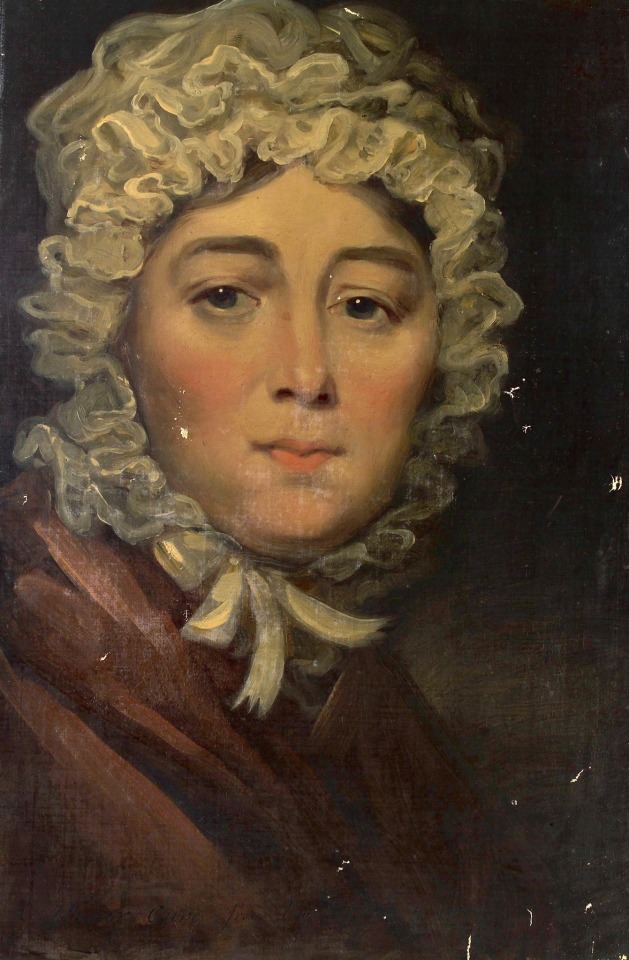
Mrs Bennett, afflicted with a skin disease 1818, completely recovered 1821. Oil paintings on canvas.
Wellcome Collection
53 notes
·
View notes
Text

I’m aquaphor’s #1 fan btw
#me#selfie#self#ootd#aquaphor#dermatology#lol this is me at a work event last week in California#glasses#business casual#girl
17 notes
·
View notes
Text

I got my neoplasm removed today
7 notes
·
View notes
Text
Oedema - pitting vs non-pitting
Oedema is swelling due to excess fluids in tissues.
In pitting oedema, pressing on the affected area leaves an indentation (that persists after removing the pressure). In non-pitting oedema, the area feels firm to touch and does not form indentations.
Pitting oedema:
The excess fluid is mainly composed of water
Commonly caused by heart failure, venous insufficiency, or nephrotic syndrome
Non-pitting oedema:
The excess fluid consists of water WITH protein and salts
Usually indicates a condition of the thyroid / lymphatic system
Different types:
Lymphoedema is due to a build-up of lymphatic fluid (e.g. due to a tumour blocking lymphatic flow / after removal of lymph nodes).
Myxoedema occurs in hypothyroidism and often affected the pretibial or periorbital area.
Angioedema is localised swelling of the skin and is usually due to allergic reactions. It typically affects the face, tongue, larynx, abdomen, arms, and legs. When the larynx is affected, it may affect breathing, which is an emergency!
Lipoedema is when fat accumulates in subcutaneous tissues - it usually affects the legs/buttocks and almost exclusively occurs in postpubertal females (not the same as cellulite!)
If patients present with oedema, it's always important to test if it's pitting or non-pitting as this helps to determine the cause and correct treatment!
#med school#medical student#medicine#revision#medspo#medblr#dermatology#renal#cardiology#oedema#pitting#non-pitting#heart failure
31 notes
·
View notes
Link
A common fatty acid found in the Western diet breaks down into compounds that contribute to increased temperature and pain—but not itch—sensitivity in people with psoriasis lesions, researchers report.
The finding could lead to better understanding of how lipids communicate with sensory neurons, and potentially to improved pain and sensitivity treatments for psoriasis patients.
Linoleic acid is a fatty acid found in vegetable oils, nuts, and seeds, and is one of the predominant fatty acids found in the Western diet. Metabolites from linoleic acid—the products formed when the body breaks it down through digestion—play a role in skin barrier function.
“We noticed high levels of two types of lipids derived from linoleic acid in psoriatic lesions,” says Santosh Mishra, associate professor of neuroscience at North Carolina State University and corresponding author of the research in JID Innovations.
“That led us to wonder whether the lipids might affect how sensory neurons in these lesions communicate. We decided to investigate whether their presence could be related to the temperature or pain hypersensitivity that many psoriasis patients report.”
Continue Reading
74 notes
·
View notes
Text
Resident: Hippocrates said that, wherever there was pus, you had to drain.
Intern: See? Pop that pimple.
56 notes
·
View notes
Text
*Want to check if I still have dermatographia
*Write a lil message on the back of my hand
*Go back to writing, forget about it
*Wait 30 minutes
*Reach for phone
*Be greeted with this gem

*Die
14 notes
·
View notes